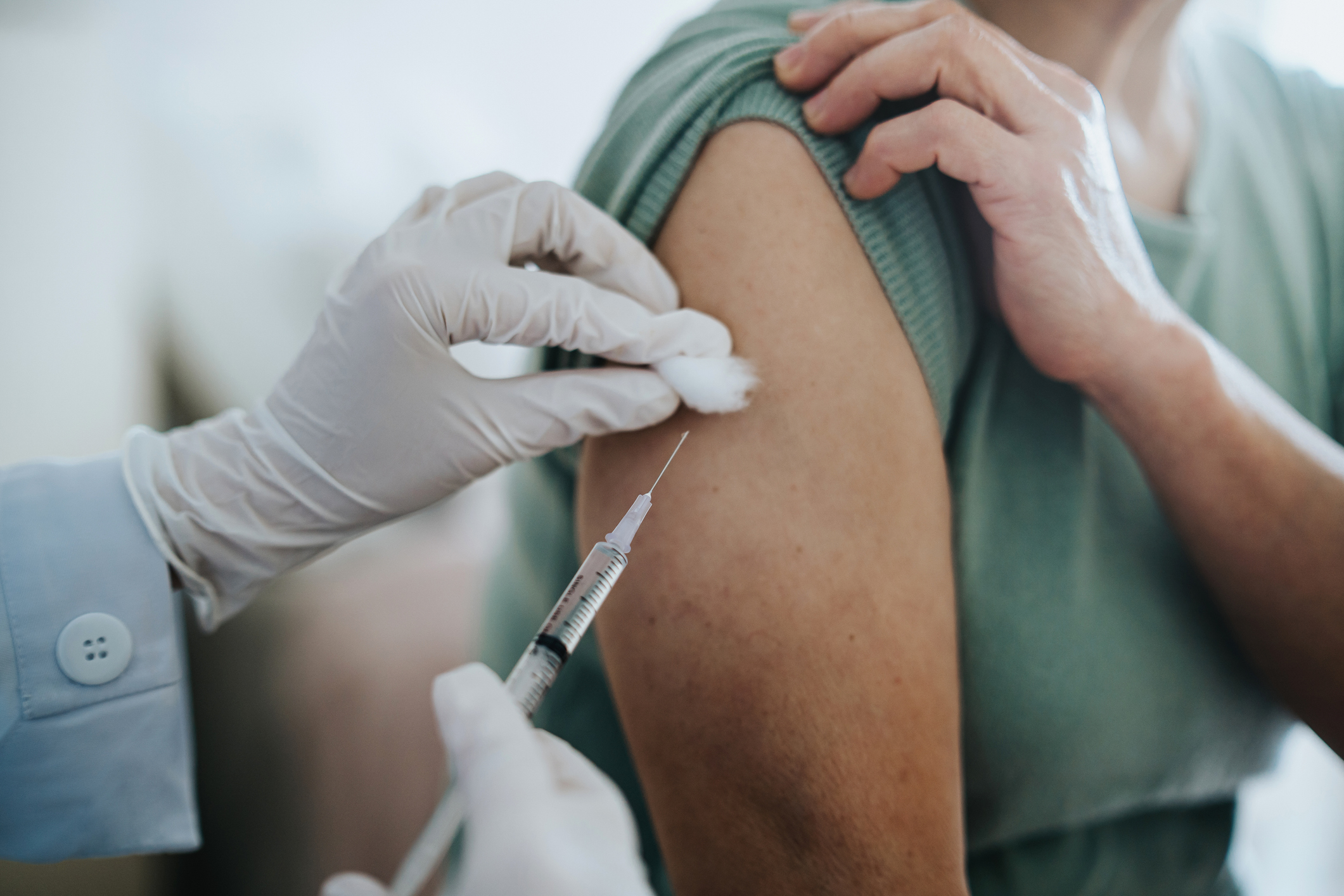
The current medicine chest for treating COVID-19 is fairly sparse. Only one drug—remdesivir—is approved by the U.S. Food and Drug Administration (FDA), and three—Paxlovid, molnupiravir, and convalescent plasma—have emergency use authorization from the FDA. With new variants of the virus continuing to emerge, developing next-generation treatments is a top priority.
One such therapy could be interferon lambda. In a study published Feb. 8 in the New England Journal of Medicine, researchers led by Dr. Jeffrey Glenn at Stanford University report that a single injection of that drug within three days of of the first symptoms reduced hospitalizations for COVID-19 by 51%, and deaths by 50%, among vaccinated people. The benefits are even greater among unvaccinated people, with hospitalization drops of 80% or more, putting it on par with Paxlovid.
“It’s really exciting data,” says Glenn, the study’s senior author.
How it works
Interferon lambda is an antiviral that works on several levels during a viral infection: by killing invading viruses and warning uninfected cells to set up their defenses against infection. The compound is therefore active against a number of different viruses. It’s been studied most extensively at Eiger BioPharmaceuticals—which tested and makes the drug, and which Glenn founded and maintains an equity stake in—against the hepatitis D virus, which causes liver disease. (Studies involving the drug for that virus are ongoing.)
The current study involved nearly 2,000 people in Brazil and Canada and took place from June 2021 to February 2022, when several different variants were circulating, including Delta and the first versions of Omicron. About half of the participants were given the drug, and half a placebo. Because the treatment requires only a single shot administered by a doctor, compliance was 100%, and researchers observed minimal side effects. By contrast, the oral treatment Paxlovid requires people to take dozens of pills over five days, and may have adverse interactions with some commonly prescribed medications, including some cholesterol-lowering statin drugs.
The researchers found that interferon lambda had similarly high antiviral activity against all of the variants tested, a promising drug trait against an ever-evolving virus. Interferon lambda’s broad antiviral effect also means it could potentially be a useful therapy against a number of different viruses beyond SARS-CoV-2 and hepatitis D, including influenza, Glenn says. He hopes a future study will put that possibility to the test with a trial in which people with symptoms like fever, cough, and muscle aches would be randomly assigned to receive interferon lambda or placebo even before they were tested to figure out which viral infection they have, so scientists could learn more about the extent of the drug’s efficacy as a broad-spectrum antiviral treatment. “Now, if you go to the doctor and tests show you have a virus, you’re generally told to go home,” Glenn says. “But imagine if instead you get a shot of lambda. It wouldn’t matter what you have, whether it was COVID-19, RSV or influenza, all of those viruses should be sensitive to lambda.” At least, that’s the hope, which needs to be borne out by more studies.
The researchers believe that interferon lambda could also slow or even keep the virus from mutating to become resistant to other antiviral treatments, such as Paxlovid and molnupiravir. A recent study showed that SARS-CoV-2 has already begun to develop resistance to molnupiravir, which isn’t uncommon for antiviral drugs. And lab studies have found several pathways by which the virus mutates to escape Paxlovid. (Anti-HIV medications, for instance, commonly develop resistance to that virus.) Treating people with a combination of antivirals that includes interferon lambda could theoretically suppress viral escape, says Glenn—another intriguing assertion that needs to be tested. “If we see widespread resistance to Paxlovid, we’ll be in big trouble,” he says. “But one of the ways to decrease the likelihood of that happening is to combine it with an interferon like lambda. Both drugs have high response rates, and if you combine them, you should get even higher response rates and decrease the emergence of resistance.”
The future of interferon lambda
Don’t expect interferon lambda to be available in the U.S. anytime soon, however, says Dr. David Apelian, interim CEO of Eiger BioPharmaceuticals. After the company first analyzed the data, it petitioned the FDA for emergency use authorization last spring. But after months of discussion, the FDA turned down the request in September because the study was not conducted in the U.S., and asked for such a study to qualify the drug for consideration under emergency use authorization.
Apelian says that would be too time consuming and expensive for the company in the near term. “Any option that would satisfy the FDA’s request would probably be a costly and multi-year exercise,” he says. “And given the reduced sense of urgency from the federal government about COVID-19, the EUA path looks less likely today than it did six months ago.”
Instead, the company is looking for faster approval outside of the U.S., since it says it already has 100,000 doses ready to distribute and the capacity to quickly manufacture 10 million more. “China and Australia appear to have the highest level of concern about the current state of the pandemic, so they are the most notable,” says Apelian of Eiger’s potential next targets.
More Must-Reads from TIME
- Cybersecurity Experts Are Sounding the Alarm on DOGE
- Meet the 2025 Women of the Year
- The Harsh Truth About Disability Inclusion
- Why Do More Young Adults Have Cancer?
- Colman Domingo Leads With Radical Love
- How to Get Better at Doing Things Alone
- Michelle Zauner Stares Down the Darkness
Contact us at letters@time.com